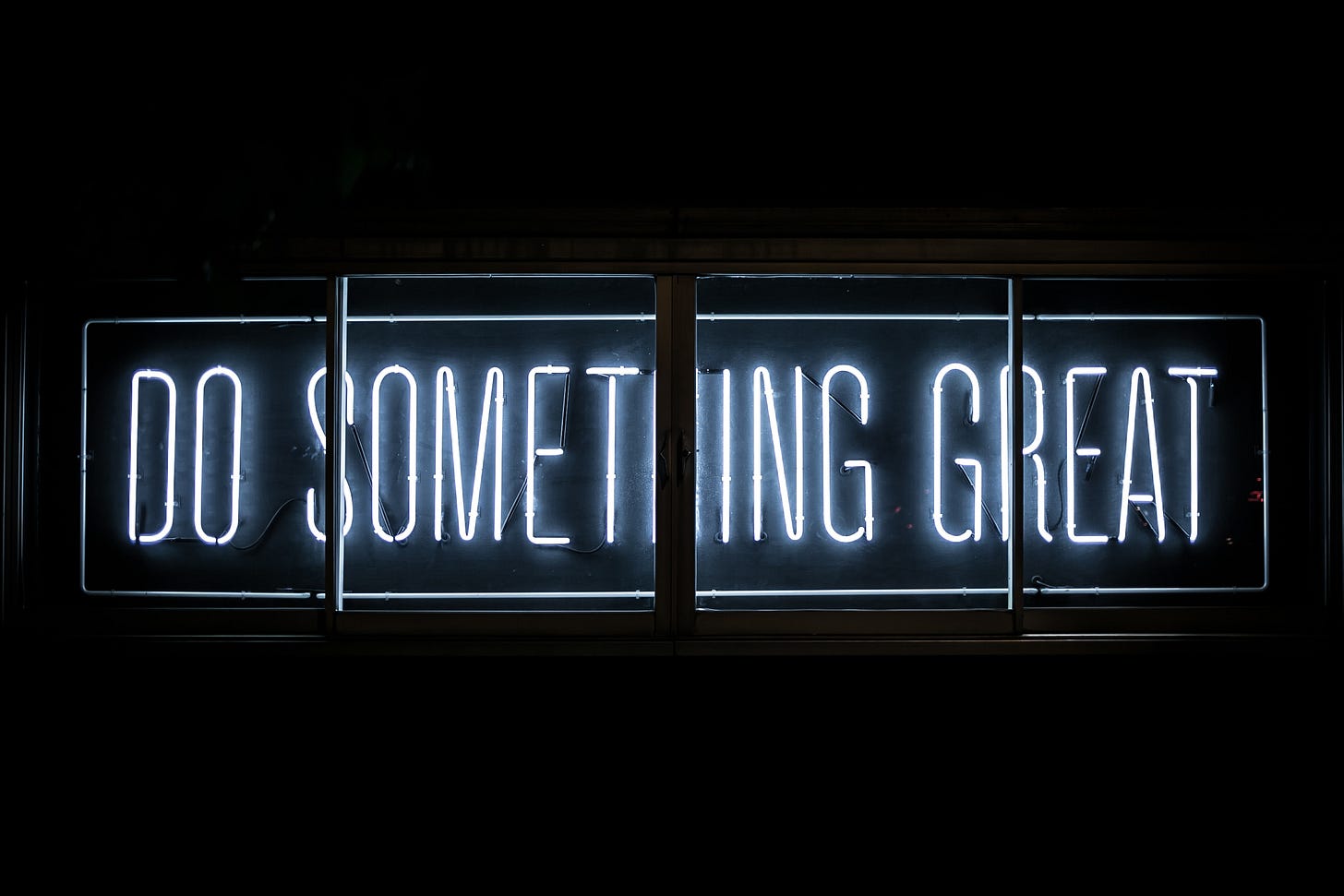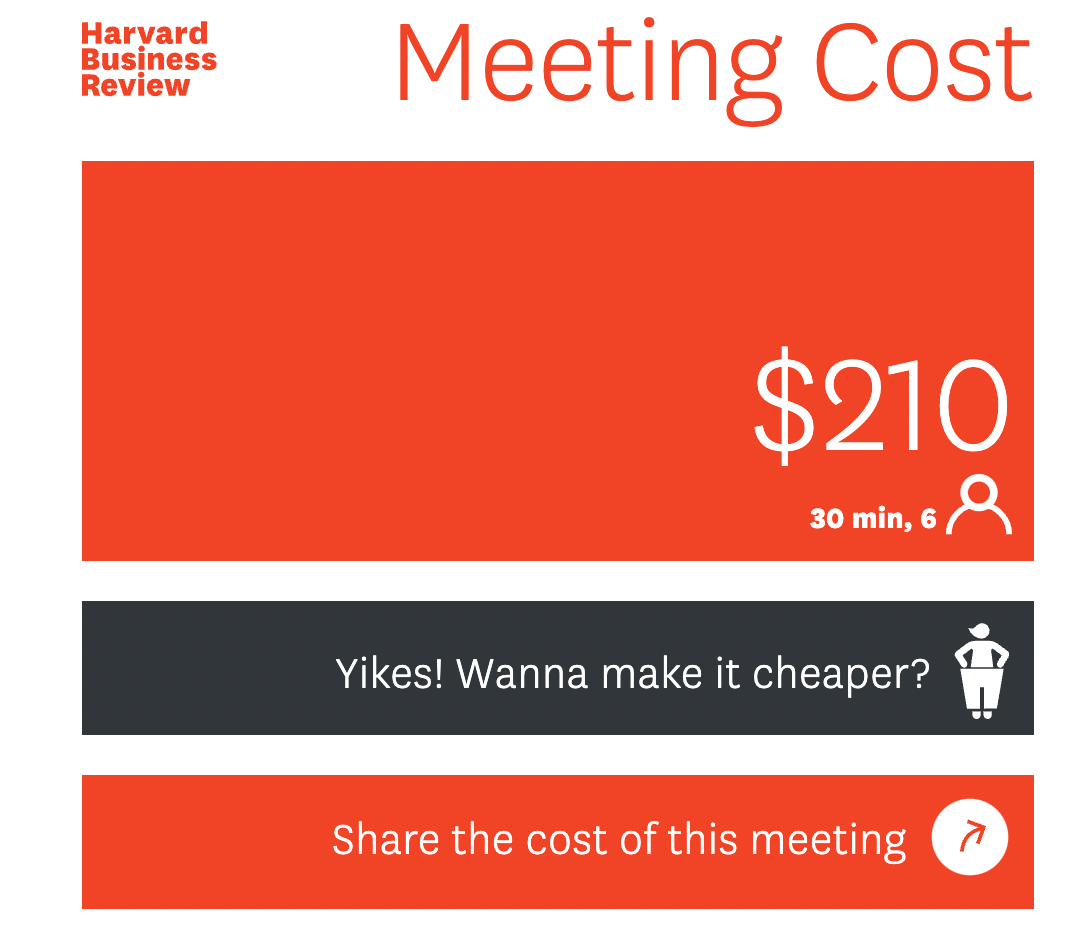International Generalist #14: doing great work & meetings ruining your bottom line
Find something you're both good at and passionate about. Focus. Take care of yourself. Be in it for the long-term. Oh, and eliminate most of your meetings.
Welcome to the 12th edition of International Generalist. Today, we’ll look at ways of doing great work, how meetings are ruining your bottom line, and what you can do about it.
If you don’t find this valuable, you can always unsubscribe at the bottom of this email. If you like it, tell your friends to subscribe here. It’s the best way to support this newsletter. :)
Let’s dive in.

#1: How to do great work
Paul Graham recently released an article titled “how to do great work”, and as reader of this newsletter, chances are high that you’ve read it. So instead of giving you my clickbaity “five things I took away from Paul Graham’s new article”, let me add my own perspective.
What does it take to do great work?
First, find something you’re both good at and passionate about. Which is hard. Neither can we just “follow our passion” - it is one piece of the puzzle, not the puzzle itself. In order to do great work, you need to have both: skill and passion.
Next, focus. In our ever distracted world, finding focus is becoming more difficult than ever. Focus is your superpower: do something intensely without distractions, and you’ll be amazed what you can get done in a short period of time.
Getting into that state just rarely happens these days. (For more on this, read Indistractable by Nir Eyal).
Third, take care of yourself. A healthy mind lives in a healthy body. The best “productivity hacks” are 8 hours of sleep, proper nutrition & hydration, and regular exercise. It’s simple - just not easy.
Last week, I let my routines slide, drank a lot, slept little, and didn’t really work out. Wasn’t great. Neither was my professional output.
Fourth, be in it for the long term. We all underestimate what we can do in one year and underestimate what we can do in ten (same goes for days vs. weeks vs. months). Results don’t come in days, even weeks. But working on your goals day in and day out will eventually pay off.
This shouldn’t exclude the possibility of short-term wins, but real great work gets done in a measure of years, not days. The days are just the building blocks towards the greatness you’re building.
Take this famous analogy:
An industrialist calls in a mechanic to fix a broken machine. The mechanic walks around it, listens, and then knocks on a specific spot with his wrench.
Later, he sends the industrialist a bill for 10.000 €. Obviously, the industrialist is confused: what could’ve possibly been so expensive? He just had to knock.
So he asks for an itemised bill and receives the following:
Knocking on machine: 10 €
Knowing where to knock: 9.990 €
Great work doesn’t happen overnight. It happens in daily increments.
#2: Meetings are ruining your bottom line
This is what Shopify realised at the beginning of the year. They:
Cancelled all recurring meetings with more than two participants
Established “meeting-free Wednesdays”
Forced all large meetings to take place in a six-hour block of time on Thursdays
Companies should be building.
In meetings, we rarely build.
Instead, we spend most of our time aligning. Nobody needs more “alignment” meetings; we need less.
In fact, let’s look at an example using the HBR Meeting Cost Calculator (my new favorite tool):
The meeting is recurring bi-weekly, with 6 participants from the leadership team, and takes 30 minutes
For simplicity’s sake, let’s assume each of them makes an annual salary of 100.000 €
Plugging these numbers into the calculator, one meeting (if it starts and ends on time) costs 210 €
Assuming the meetings takes place 25 times per year, this leaves us at a 5.250 € cost for the “bi-weekly leadership meeting”.
Maybe this meeting is indeed necessary.
But now you have the financial impact of spending time in this meeting - which will lead to educated decisions about whether to have it at all.
#3: Replace purely informational meetings with newsletters
I did this exact calculation when evaluating my calendar. Every Monday, I’d host a “weekly kickoff meeting” with my team that lasted for an hour and basically consisted of myself giving updates about what’s going on in the company, followed by a few questions.
We tested something else: instead of having this meeting, I would just write a weekly kickoff newsletter containing the same information. It didn’t take me much longer than being in the meeting to give these updates, but it reduced the time spent by my team massively - unlocking time for them to build.
Previously, I had locked in 11 hours of my team’s time.
Now, it was just 2 hours: 1 hour that it took me to write the newsletter, and 10 * 5 minutes for everyone else to read it. If there were any questions, we’d ask and answer them in Slack.
This move saved 450 hours in a year.
Action Items:
Do great work (and maybe read Graham’s essay)
Understand that meetings are really expensive
Eliminate recurring informational meetings by writing internal newsletters
That’s it for this edition of International Generalist. Thanks for tuning in and reading!
If you enjoyed this, please ask yourself: which one person that you know would most benefit from reading this newsletter? The number one way to support me is to share this with others aspiring to become more effective in their personal and professional lives.
Who’s behind International Generalist?
I’m Dominik, and every day, I try to figure out how to become a tiny bit more effective. Then, I share some of the lessons learned here.
When I’m not writing, I build the international business for Sdui - the Leading European SchoolOS -, play Lacrosse, lift weights and enjoy draft beers.
Here’s how else I can help you:
Book a 1:1 meeting to discuss how you can manage your time better - please email me
Read the newsletter archive for more actionable nuggets
Send me a question, so I can answer it in the newsletter or in a long-form blog post
See you in two weeks!
Much love
Dominik




